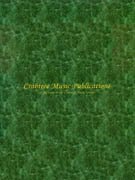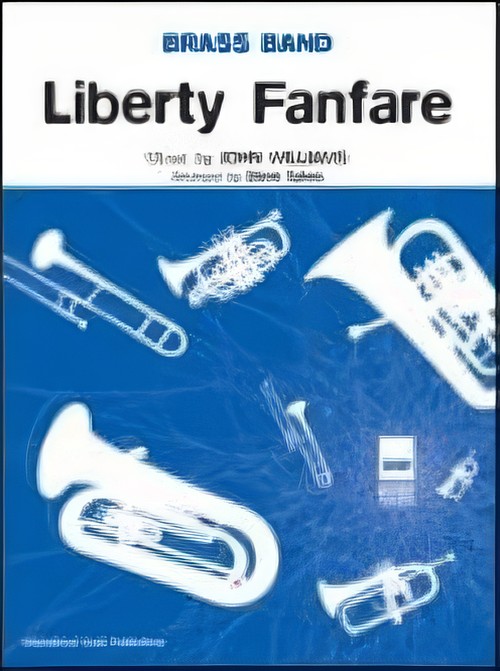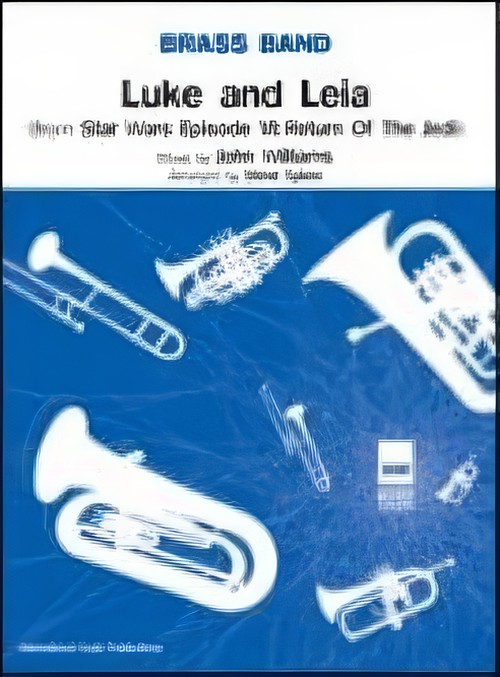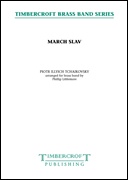Results
-
 £60.99
£60.99King Kong (Brass Band - Score and Parts)
Mention King Kong to anyone and they will imagine the famous Empire State Building scene with the massive ape. In this work Klaas and Titus van der Woude have taken the theme from James Newton Howard's movie soundtrack and arranged it into a fantastic concert piece that will have your audience hiding under their chairs and screaming in fear. 06:11
Estimated dispatch 7-14 working days
-
 £13.99
£13.99King Kong (Brass Band - Score only)
Mention King Kong to anyone and they will imagine the famous Empire State Building scene with the massive ape. In this work Klaas and Titus van der Woude have taken the theme from James Newton Howard's movie soundtrack and arranged it into a fantastic concert piece that will have your audience hiding under their chairs and screaming in fear. 06:11
Estimated dispatch 7-14 working days
-
 £60.99
£60.99Laudatio (Brass Band - Score and Parts)
This piece was commissioned by a brass band from the Jura in Switzerland to thank its resigning conductor for his loyalty and work. The first and last sections of this composition develop a joyful and highly energetic theme which expresses the complete commitment required of a conductor in order to get the best out of the musicians. The central passage mirrors an atmosphere full of nostalgia. After so many years of intense and relentless work, it is always difficult for a keen conductor to retire. 06:15
Estimated dispatch 7-14 working days
-
 £59.99
£59.99LAURA (Flugel Horn Solo with Brass Band) - Freeh, Mark
Flugel Horn & Brass Band. David Raksin was active in the music business for so many decades that he was thought by many to be the Grandfather of film music. Raksin created notable scores for films such as Forever Amber and The Bad and the Beautiful, though he is best known for the soundtrack to Laura, where the lead character is always represented by the same theme, an "id?e fixe". This haunting melody gets under your skin and stays there. It is totally suited to the plot where the investigating detective is haunted by the subject of his investigations. Here is a chance to feature your flugel soloist in this jazz ballad which has been given the 'Freeh treatment'. Duration: 4:00 Grade: Medium
Estimated dispatch 7-14 working days
-
 £40.00
£40.00Liberty Fanfare (Brass Band - Score and Parts) - Williams, John - Sykes, Steve
The Liberty Fanfare is one of John Williams's lesser-known works, simply because it is not a film theme! In fact, the orchestral original was written for the re-opening of the Statue of Liberty following extensive repairs. This took place on the 4th of July (1986), hence the music's sense of celebration and national pride.Suitable for Advanced Youth/3rd Section Bands and aboveDuration: 5:00
Estimated dispatch 7-14 working days
-
 £34.99
£34.99Luke and Leia (Brass Band - Score and Parts) - Williams, John - Sykes, Steve
An arrangement for brass band of the love theme from Star Wars Episode VI: Return of the Jedi.Suitable for Advanced Youth/3rd Section Bands and aboveDuration: 4.00
Estimated dispatch 7-14 working days
-
 £54.99
£54.99Langstrump Samba (Brass Band - Score and Parts)
The popular Swedish children's series Pippi L?ngstrump (Pippi Longstocking) is about an exceedingly strong and strong-willed little girl with red braids - who is the brainchild of Astrid Lindgren. This series has been broadcasted in many countries. I arranged its cheerful theme tune in samba style. Even with the new rhythm, the original song is still very recognizable. In the exuberant samba style, the percussion plays an important role. Within the L?ngstrump Samba, this is especially clear in the ad libitum percussion solo halfway through the arrangement. The solo can go on as long as desired, and offers plenty of freedom because of the free choice of the instruments used. 02:30
Estimated dispatch 7-14 working days
-
 £45.00
£45.00March Slav (Brass Band - Score and Parts) - Littlemore, Phillip
March Slav?was composed in 1876 at the request of Nicolai Rubenstein (who had recently spurned Tchaikovsky's first piano concerto, and might have wanted to return to favour with the composer). Tchaikovsky loved Russian folk music--looking to it for inspiration throughout his career--and he makes considerable use of it here. From the opening theme to the final glorious statement of the Czarist national anthem, the march draws on the music of his motherland. It was first performed in a charity concert to support a war effort in the Balkans. He composed and fully scored the march in the short time of just 5 days. At the first performance its impact was such that it had to be encored in full, receiving a tumultuous reception - twice! Duration: 7:20
Estimated dispatch 7-14 working days
-
 £50.90
£50.90MUNSTERS, The (Brass Band featuring Euphonium and Basses) - Marshall, Jack - Ratnik, Peter
Main Theme from the 1960's US TV Series. Grade: Easy.
Estimated dispatch 7-14 working days
-
 £50.90
£50.90MUPPET SHOW, The (Brass Band) - Ratnik, Peter
Main Theme sung by OK Go and the Muppets 2011. Grade: easy.
Estimated dispatch 7-14 working days
